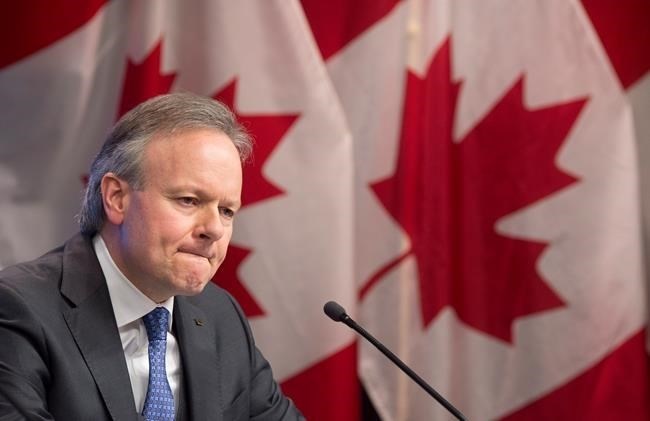
Bank of Canada Governor Stephen Poloz is seen during a news conference in Ottawa, Wednesday January 17, 2018. The economy's impressive run prompted the Bank of Canada to raise its trend-setting interest rate Wednesday for the third time since last summer and to send a signal that more increases are likely on the horizon.
Image Credit: THE CANADIAN PRESS/Adrian Wyld
January 17, 2018 - 6:00 PM
TORONTO - Canada's biggest banks will hike their prime rate by a quarter of a percentage point on Thursday, putting financial pressure on homeowners with variable rate mortgages.
The Royal Bank of Canada (TSX:RY) was first to announce its prime rate will rise to 3.45 per cent, shortly after the Bank of Canada raised its key short-term rate by a quarter-point to 1.25 per cent.
RBC was followed by Bank of Montreal (TSX:BMO), CIBC (TSX:CM), Scotiabank (TSX:BNS), TD Canada Trust (TSX:TD), National Bank (TSX:NA), Desjardins Group, HSBC Bank Canada, Laurentian Bank of Canada (TSX:LB) and B2B Bank.
Banks tend to raise their own prime rates after the central bank raises its key lending rate, which affects wholesale borrowing costs for the major lenders and the retail borrowing rates they charge consumers.
The prime rate is used as a benchmark for variable-rate mortgages and some lines of credit.
Consumers with a fixed-rate mortgage will be unaffected by the Bank of Canada's move on Wednesday until it's time for the borrower to renew the mortgage.
The major banks recently raised some of their fixed-rate mortgage rates to reflect their costs of borrowing on bond markets, which have more effect on longer-term mortgage rates than does the Bank of Canada's overnight rate.
As of Wednesday, several banks had posted five-year fixed-rate mortgages at 5.14 per cent — although lenders will often charge less than the posted rates. Posted fixed rates were lower for mortgages with shorter terms.
News from © The Canadian Press, 2018